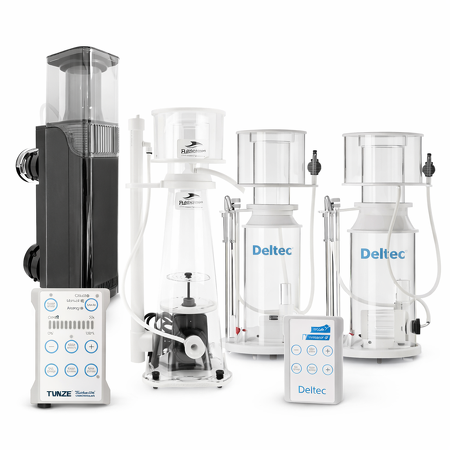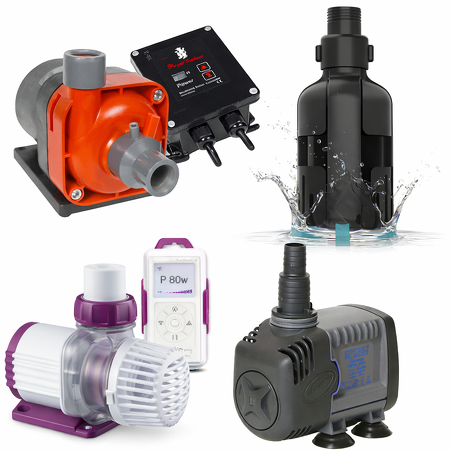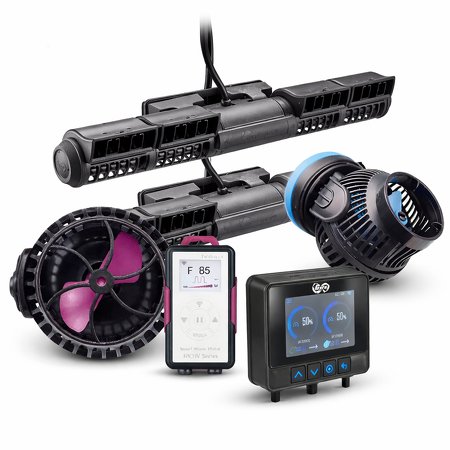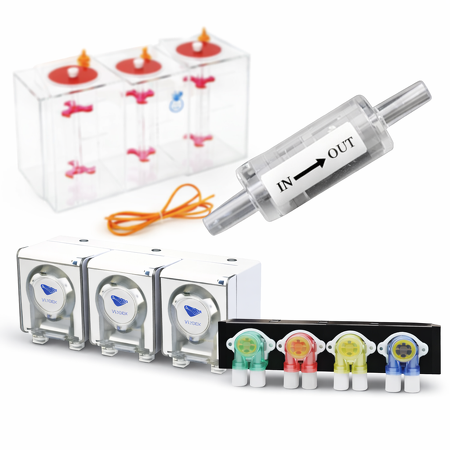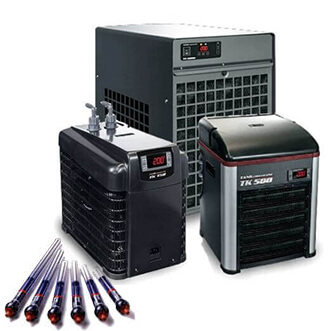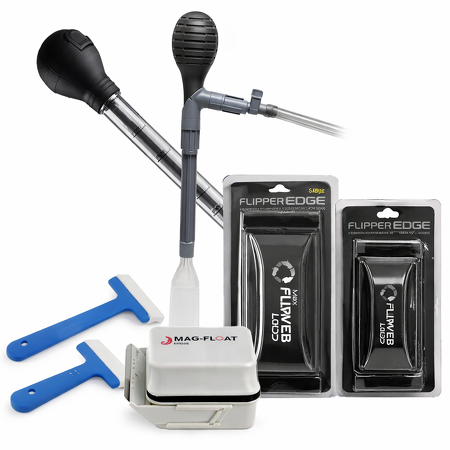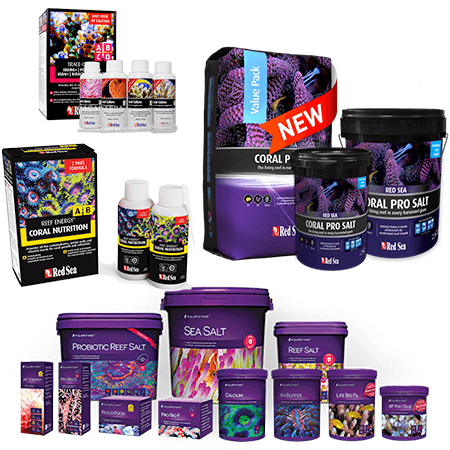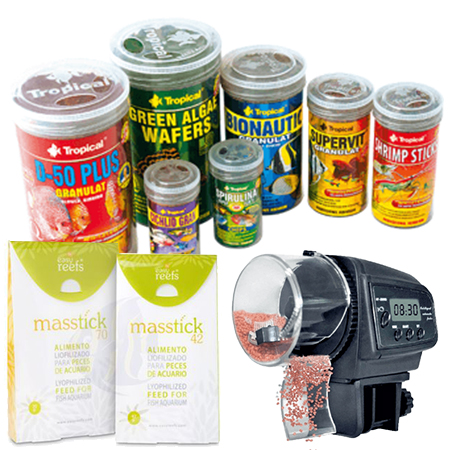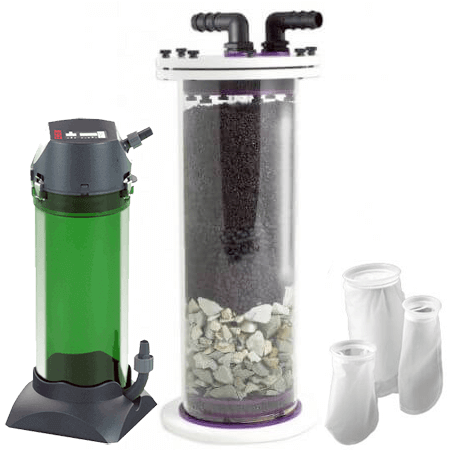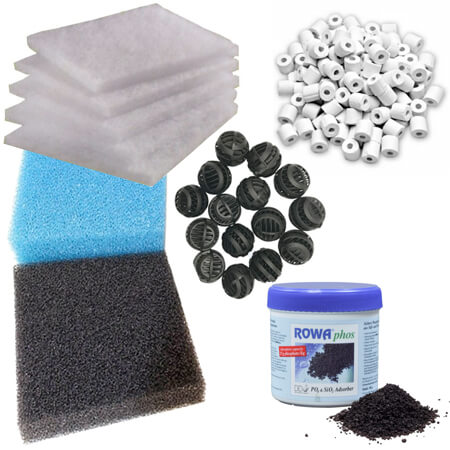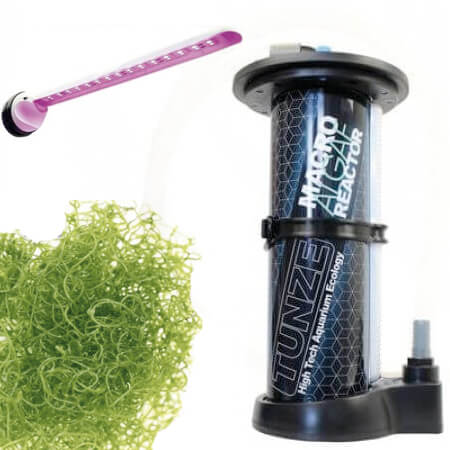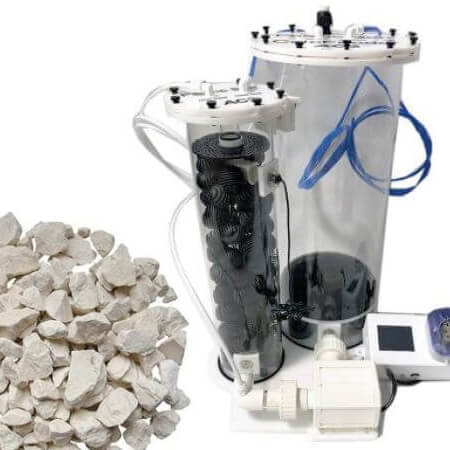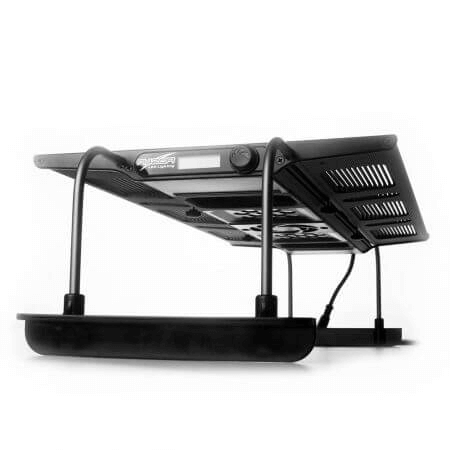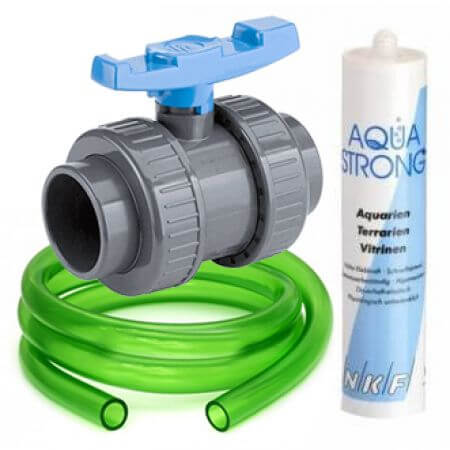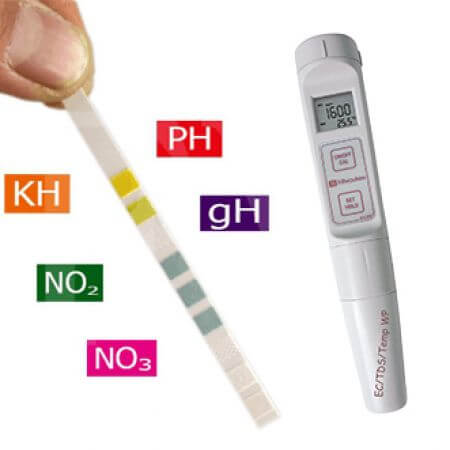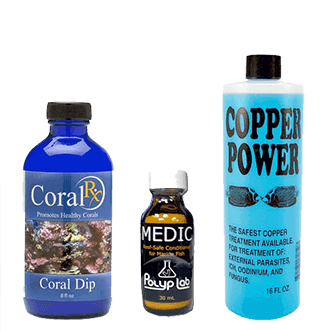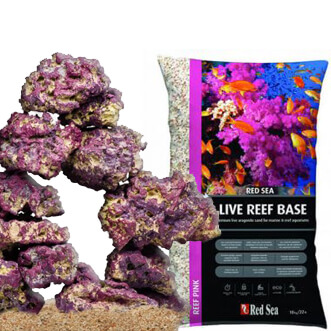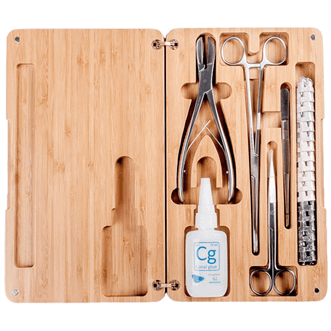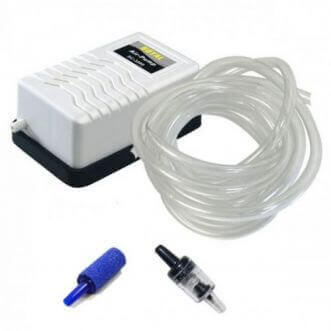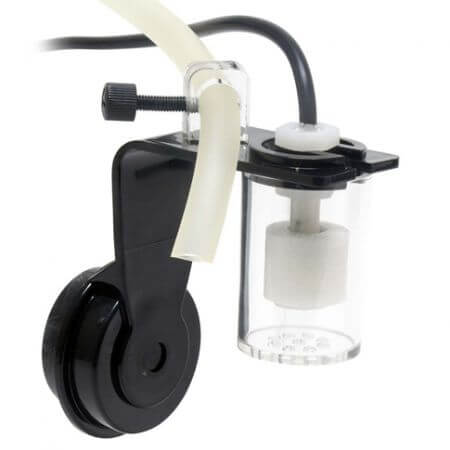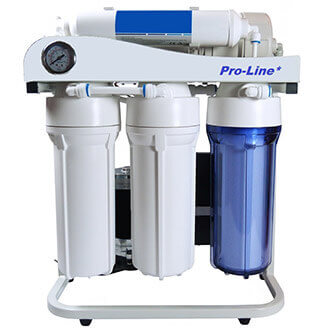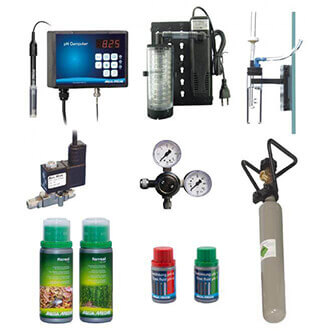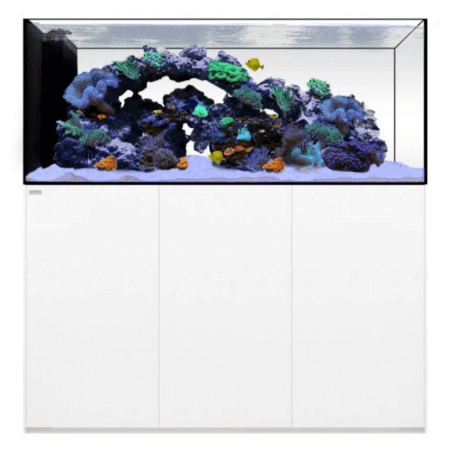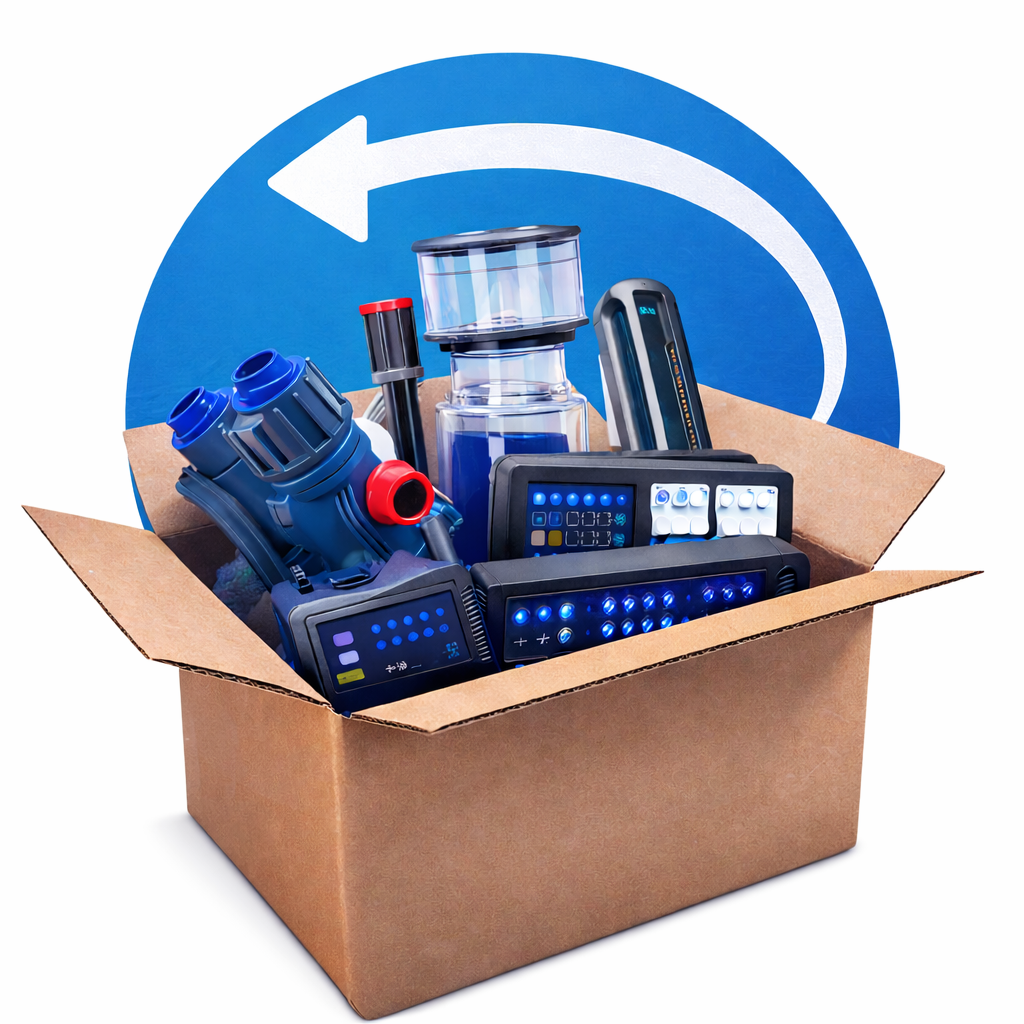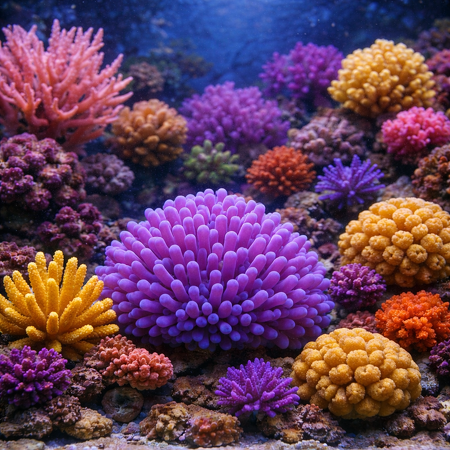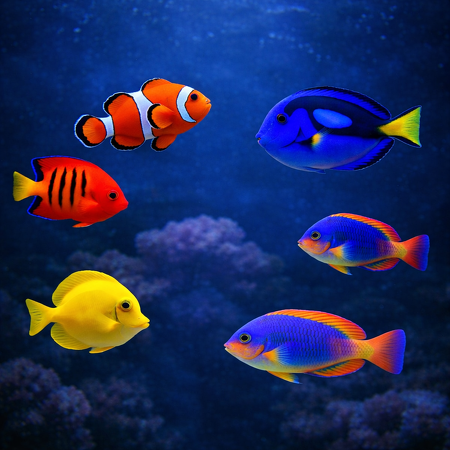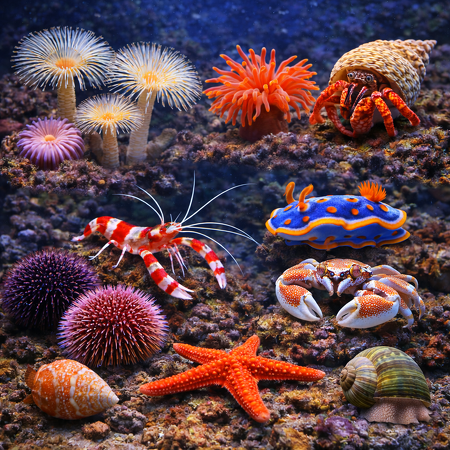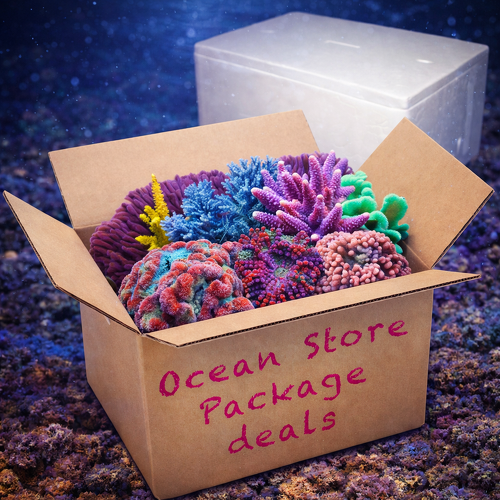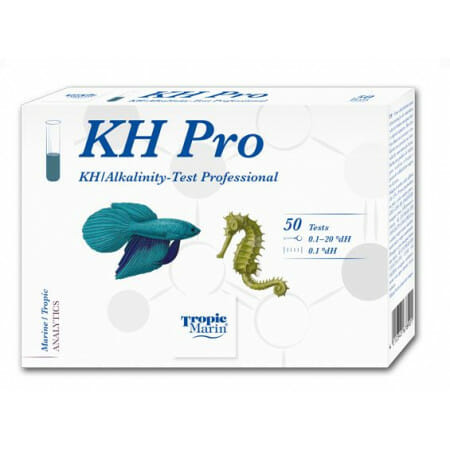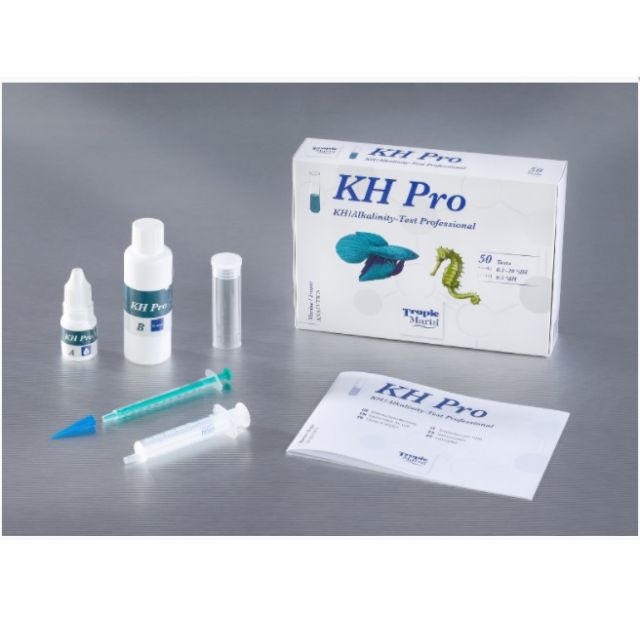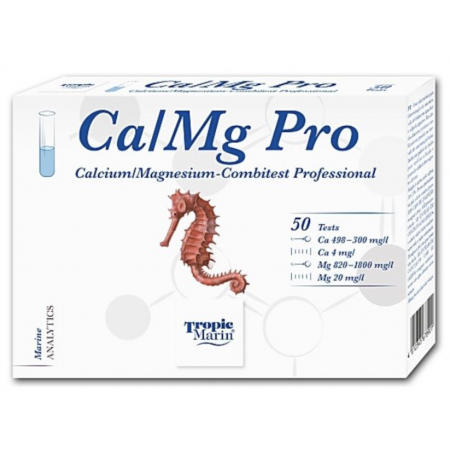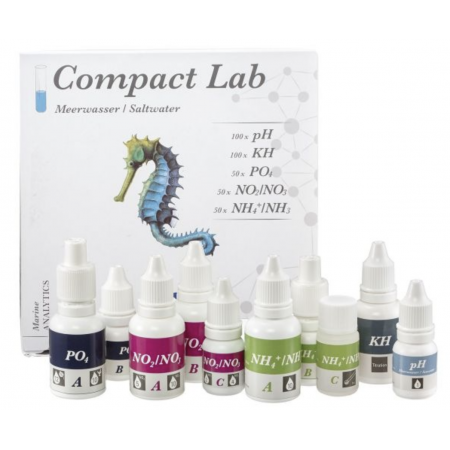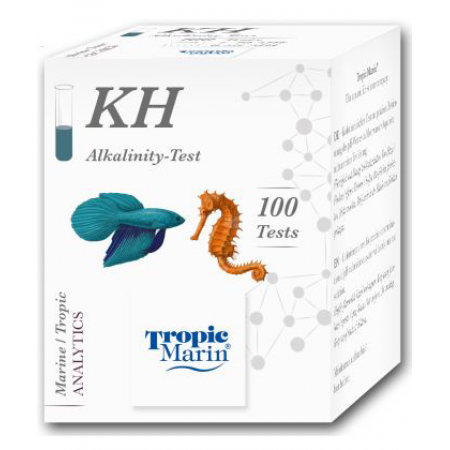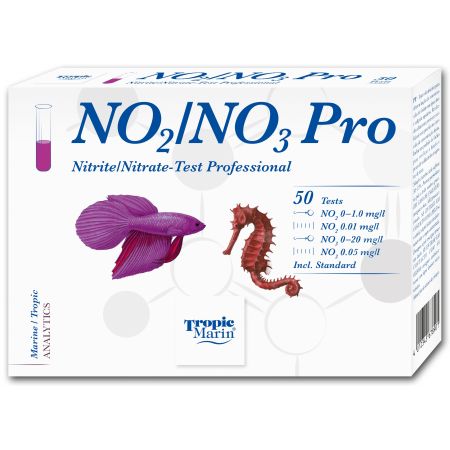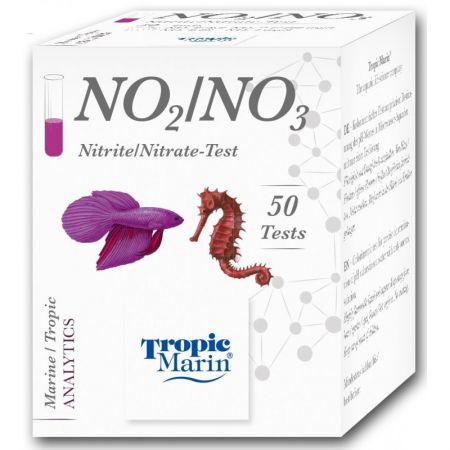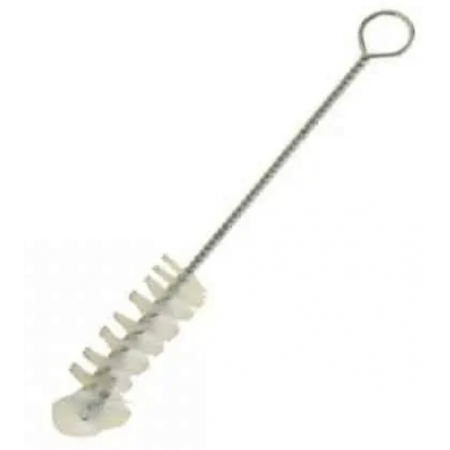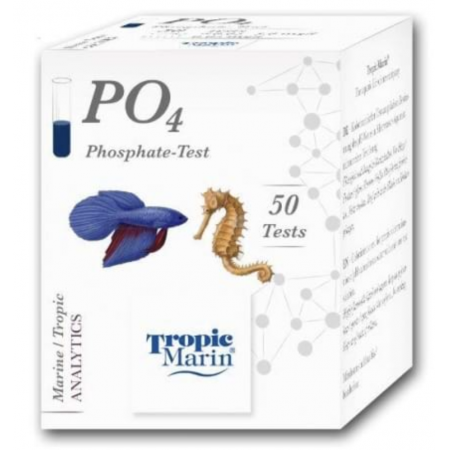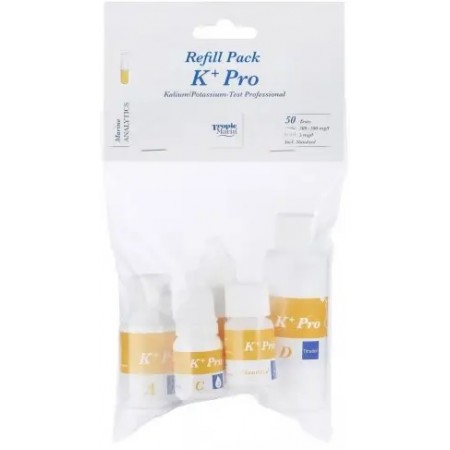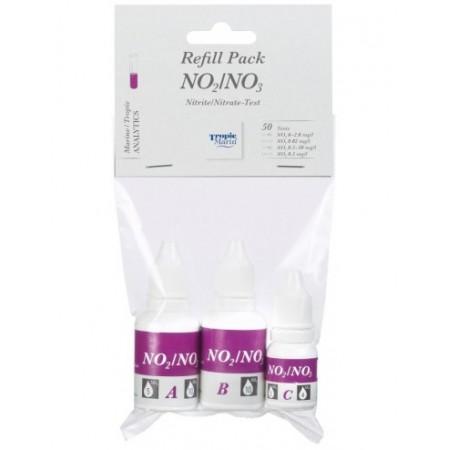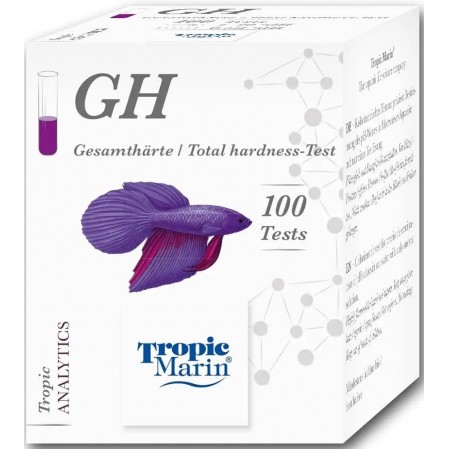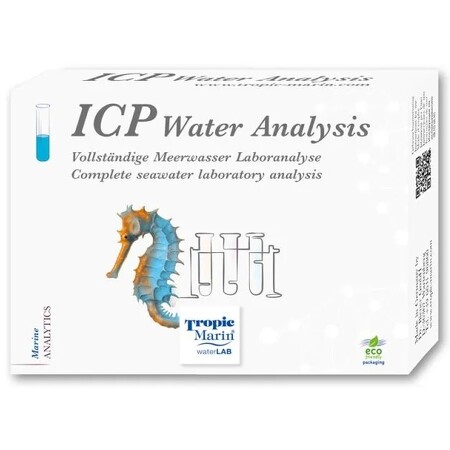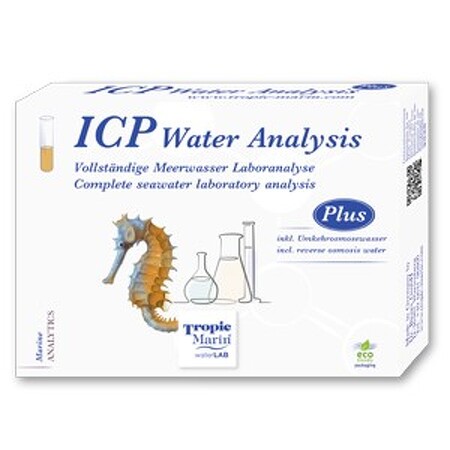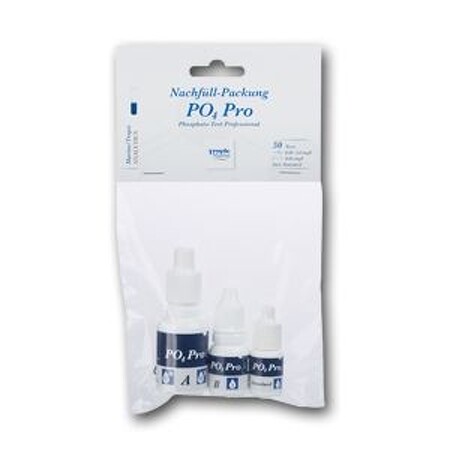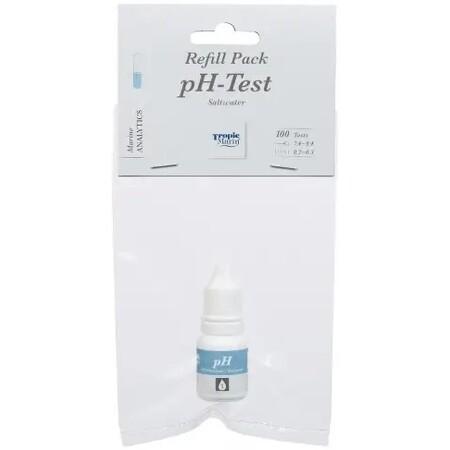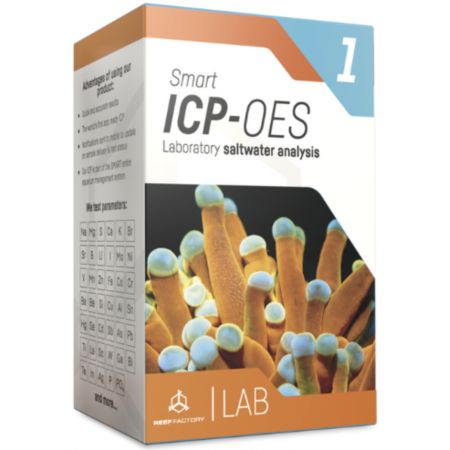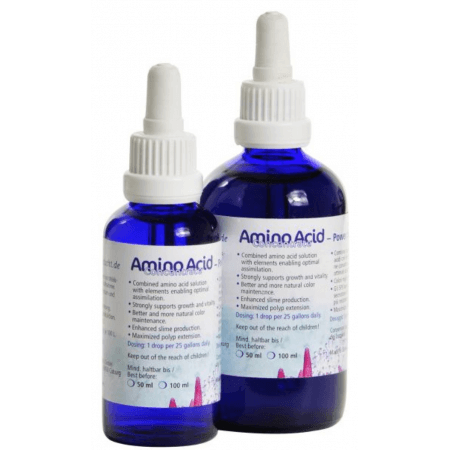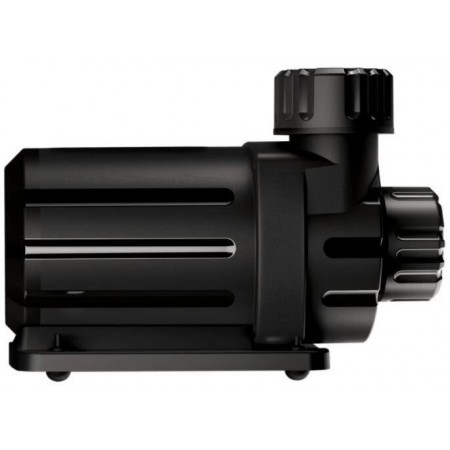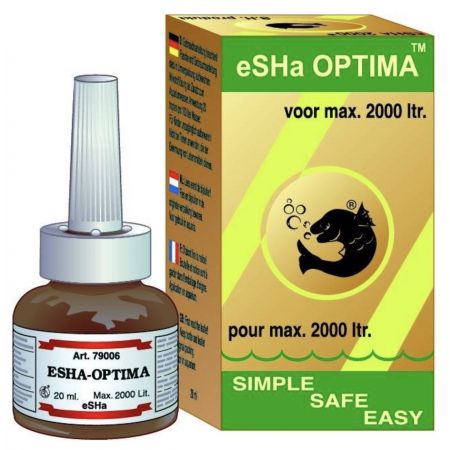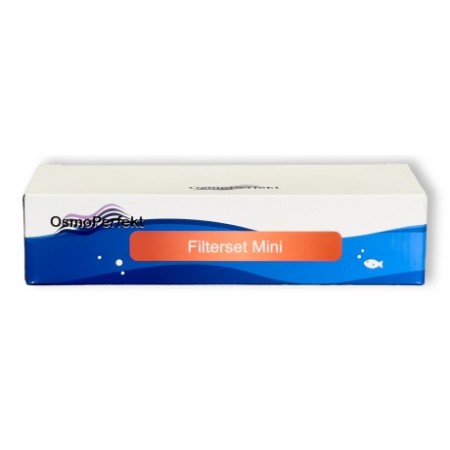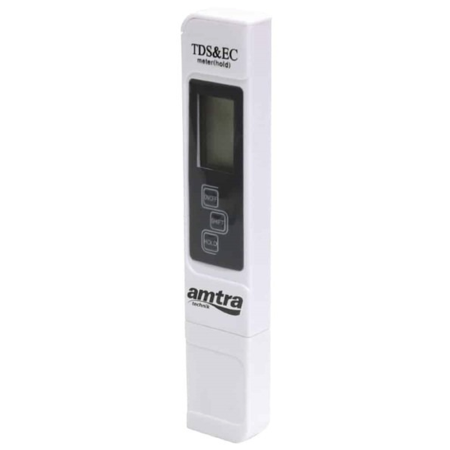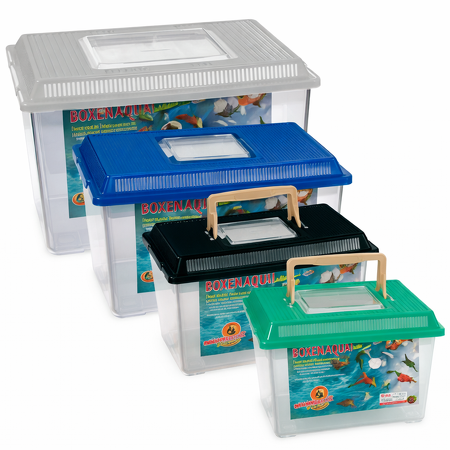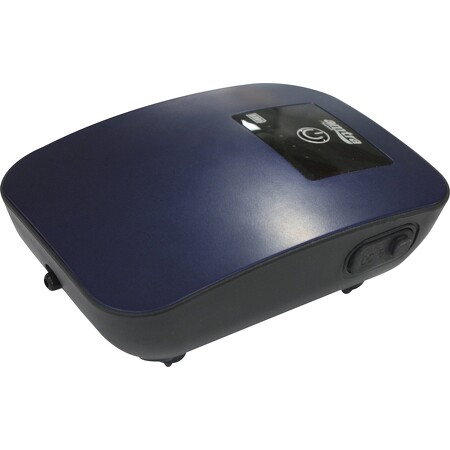Tropic Marin KH/Alkalinity-Test PRO freshwater / seawater
The carbonate hardness (KH) or alkalinity of a water sample characterizes the buffering capacity, ie the ability to maintain the pH value of the water. There are many terms in water chemistry o...
Tropic Marin KH/Alkalinity-Test PRO freshwater / seawater
The carbonate hardness (KH) or alkalinity of a water sample characterizes the buffering capacity, ie the ability to maintain the pH value of the water. There are many terms in water chemistry to describe buffering capacity with different definitions. The term "carbonate hardness" is common in fishing; however, it is the alkalinity that is measured.
In this test, both terms are used synonymously. The reading for alkalinity is usually given in degrees of German hardness (°dH). The alkalinity should be tested regularly in all aquariums. If the alkalinity in the aquarium is too low, the pH level can drop (sudden drop in acidity) to levels that are life-threatening to many fish and invertebrates.
In reef aquariums, an adequate alkalinity level is essential for strong coral growth. On the other hand, too high an alkalinity in saltwater tanks can lead to calcium carbonate precipitation and also negatively affect coral growth. The alkalinity in saltwater aquariums should range from 6 to 9°dH. The alkalinity in freshwater aquariums should not be less than 3°dH. The Tropic Marin® KH Test Kit makes it possible to quickly determine the alkalinity of your aquarium water through ease of use and high accuracy.
Characteristics
- Accurate test to determine Alkalinity
- 50 tests
- Easy to use
Advantages
- Measuring range: 0.1 – 20 °dH
- Accuracy: 0.1 °dH
- Highly accurate determination of alkalinity in aquariums
- Sufficient for approx. 100 applications at a KH of 10 °dH in the water and a resolution of 0.2 °dH / or 50 tests at a resolution of 0.1 °dH
- Measured on the German hardness scale (°dH)
- Conversion table for other units in the supplied manual
How to use
- 1 Shake the bottles before use!
- 2 Rinse the glass cuvette with tap water and then several times with aquarium water.
- 3 Fill the glass cuvette with exactly 5 ml of aquarium water using the dosing syringe.
- 4 Then add 3 drops of reagent A (indicator) and gently swirl the cuvette. The water sample turns turquoise.
- 5 Place the supplied dropper on the small syringe and withdraw 1 ml of reagent B (titrator).
- 6. Now add reagent B from the syringe to the water sample drop by drop until the water changes color from turquoise to dark blue and violet and finally to bright pink. Swirl the cuvette after each new drop. The measurement is complete when the sample has reached a bright pink color without any blue tint.
- 7 The consumption of reagent B (1 ml difference) multiplied by 10 forms the alkalinity in °dH. Example: If the bottom of the syringe plunger is 0.28 ml after titration, the consumption of reagent B is 0.72 ml (1 ml difference). 0.72 x 10 = 7.2. The alkalinity of the aquarium water is 7.2 °dH. It is possible to perform the test with a 2.5 ml sample to extend the life of the test reagents or for hard water above 10 °dH. If you choose to do this, follow the procedure described above and multiply the reagent B consumption by 20 after titration.
- 8 Rinse the glass cuvette and syringe thoroughly with tap water after the measuring process
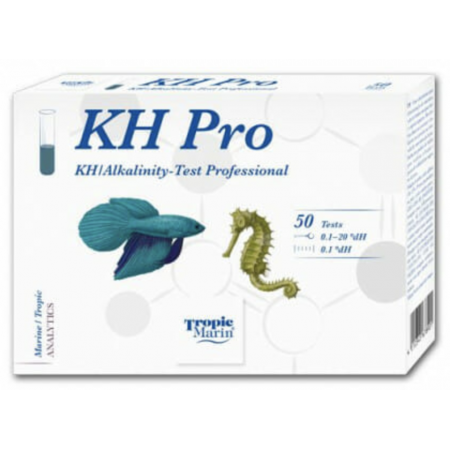
Brand
-
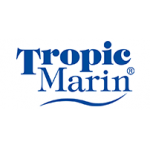
-
Tropic Marin
View 177 other products
Shipment
-
Above € 50,- free delivery in NL & BEIn stock Ordered before 16:00, shipped today *
 The carbonate hardness (KH) or alkalinity of a water sample characterizes the buffering capacity, ie the ability to maintain the pH value of the water. There are many terms in water chemistry to describe buffering capacity with different definitions. The term "carbonate hardness" is common in fishing; however, it is the alkalinity that is measured.
Tropic Marin
The carbonate hardness (KH) or alkalinity of a water sample characterizes the buffering capacity, ie the ability to maintain the pH value of the water. There are many terms in water chemistry to describe buffering capacity with different definitions. The term "carbonate hardness" is common in fishing; however, it is the alkalinity that is measured.
Tropic Marin


Ocean Store


Ocean Store is a modern webshop with a large selection of reef aquarium equipment, supplements and food for your (marine) aquarium. We excel in reachability, service and speed. Not only in delivery of your ordered goods, but also in the adequate answering of your (marine) aquarium related questions. We are happy to share our passion for reef aquariums with you!
Open: Available Monday / Friday 9:00-20:00
Phone: +31(0)78-6456669
€ 0.99 - € 2999.99
EUR
479190
Reef Factory Smart ICP OES 1 (Salt water)
RF-ICPOES1


